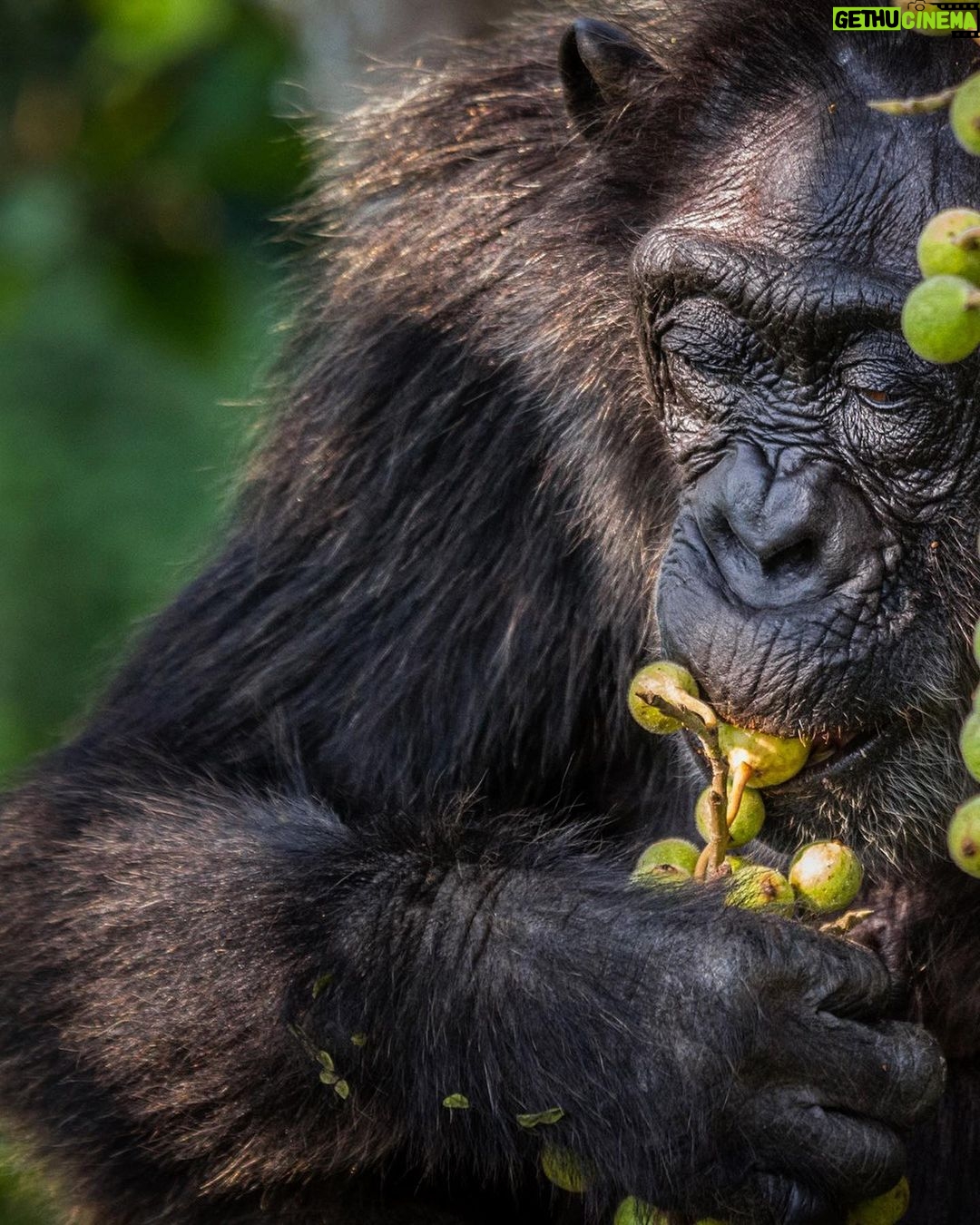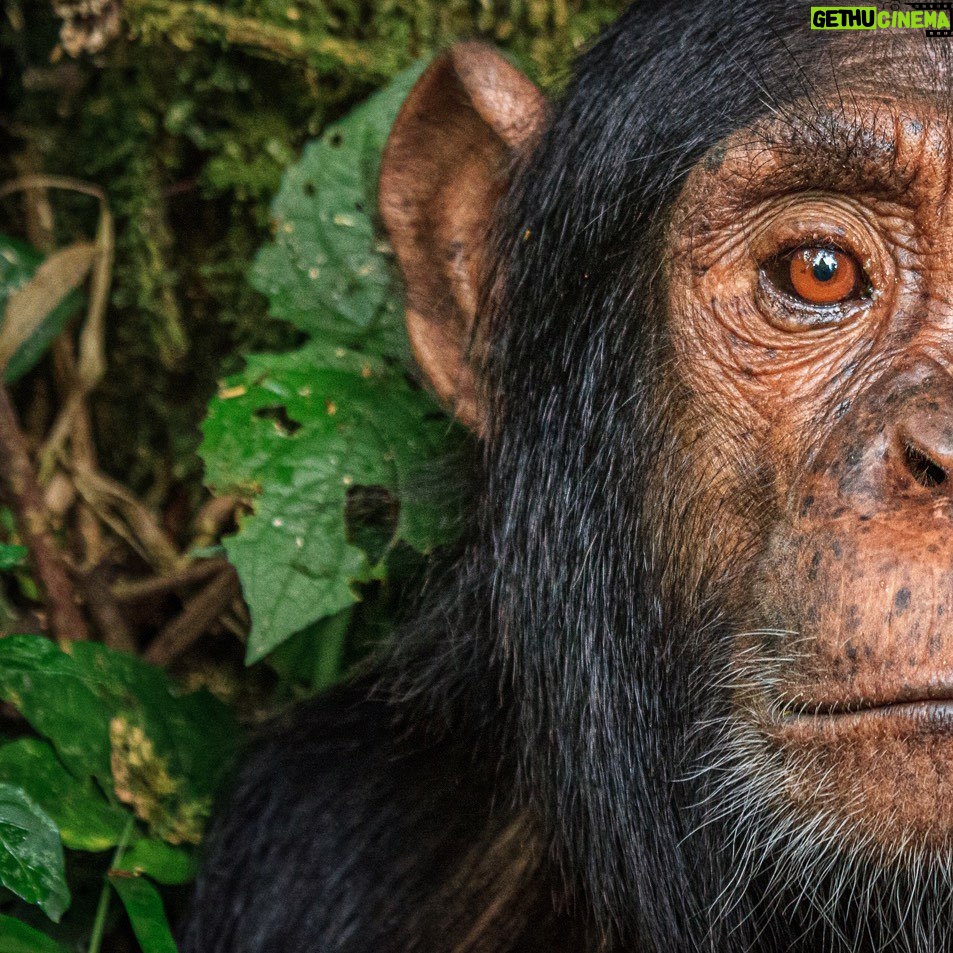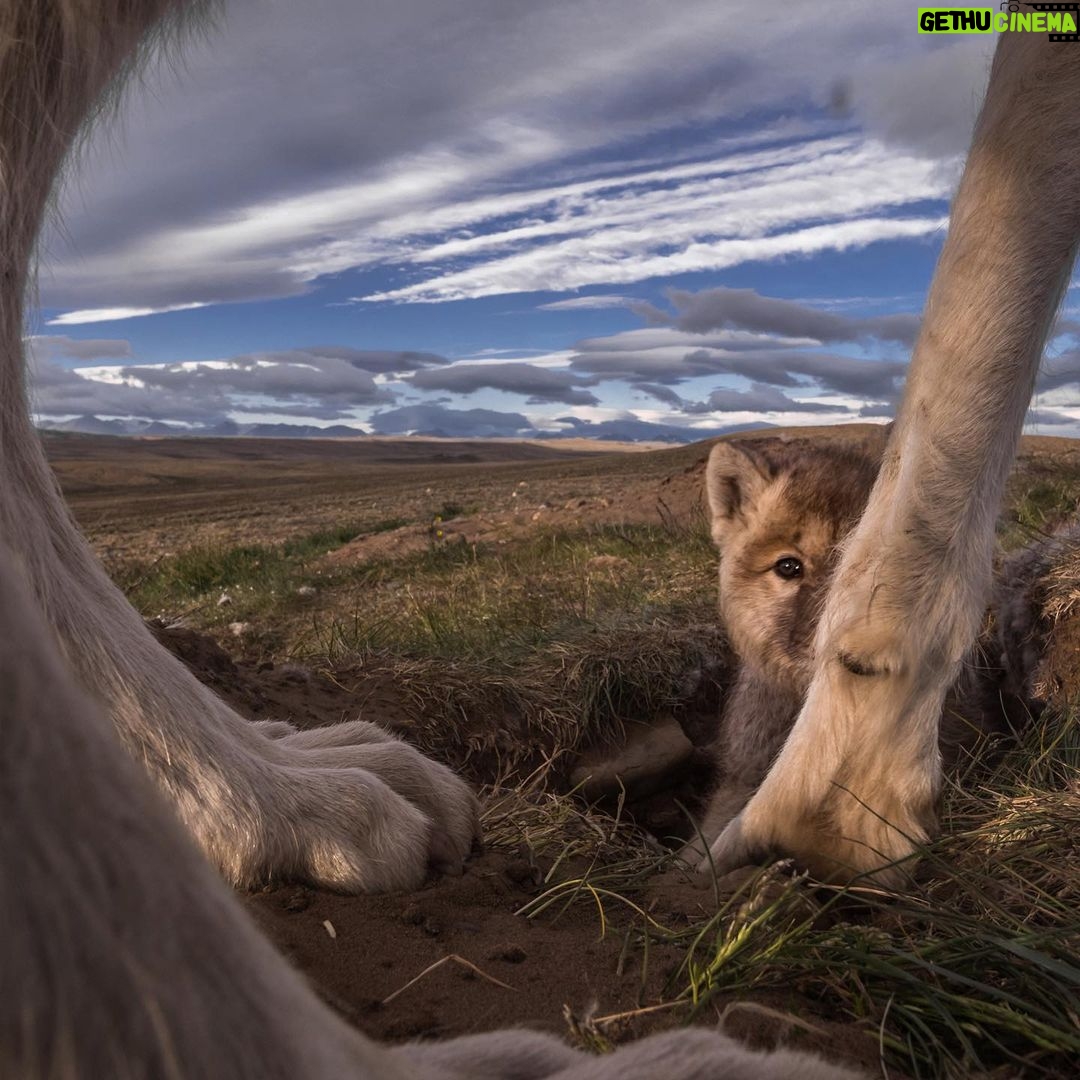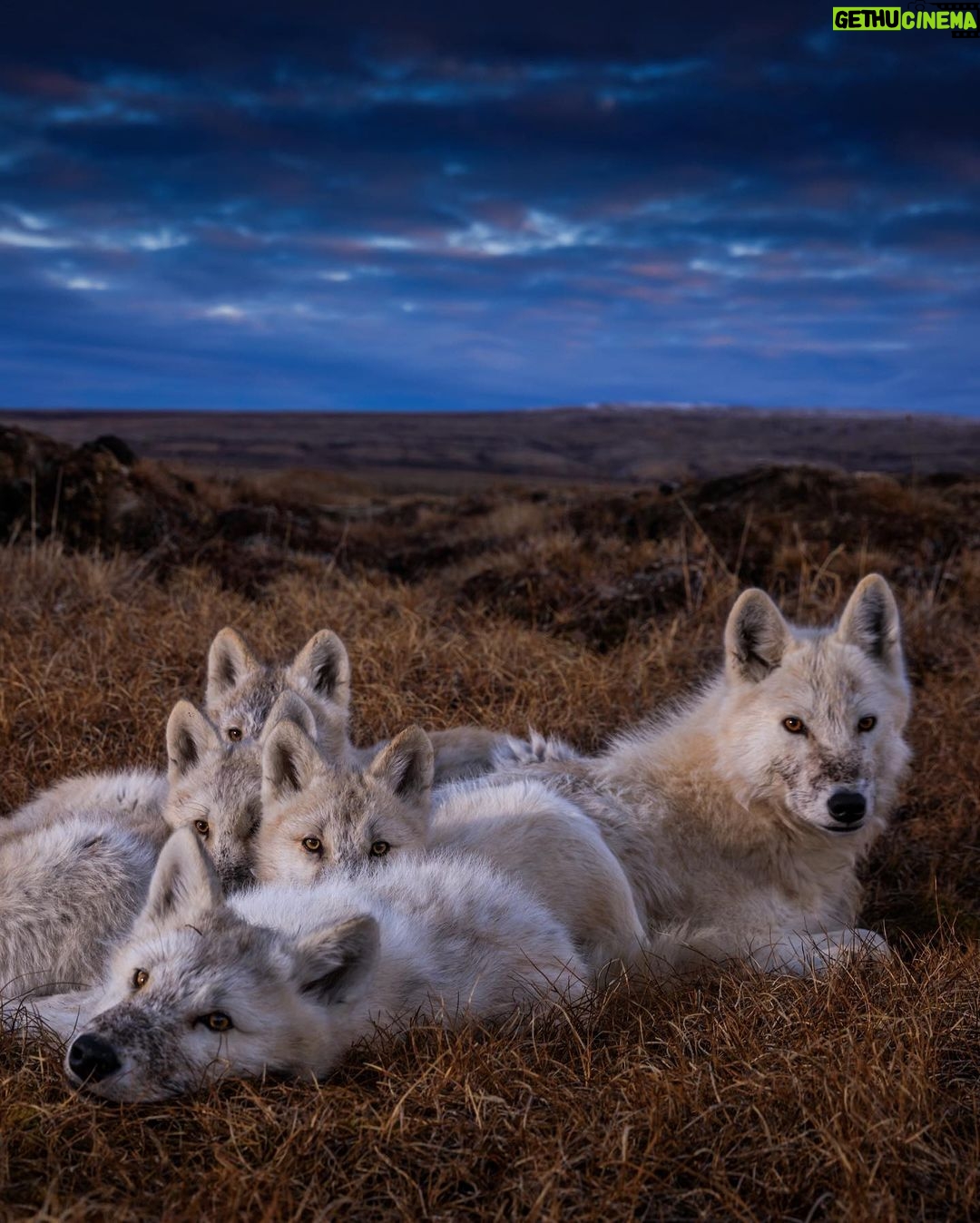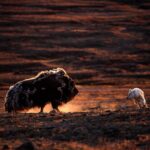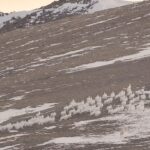Ronan Donovan Instagram – The standoff. A one-year-old arctic wolf, known as Grey Mane, looks back for direction from the rest of his pack while a herd of muskoxen form a defensive rosette nearby. Wolves can be patient hunters, especially when faced with this cooperative defense from their main prey on Canada’s Ellesmere Island – known in the Inuktitut language of the far North as Umingmak Nuna or Muskox Land.
Muskoxen have evolved to work together to achieve what they cannot alone – just like the wolves. While the muskoxen work together to protect themselves, the wolves work together in order to wear down their prey. Both behaviors from prey and predator are inextricably linked – the muskoxen wouldn’t be a different animal if not for the wolf and vice versa.
Grey Mane is the largest wolf in the pack I followed, but he still needed to learn how to be a master hunter. Hence, why he’s stepping back from this herd of muskoxen and looking to his older relatives for guidance. Are they lying down or pushing forward? Are they intently focused on their prey or blinking slowly as they look around? These are the behaviors Grey Mane is watching for and others as he learns the ways of how to be a successful wolf in the High Arctic.
There’s a link in my bio to watch the 3-part series on Grey Mane and his family called Kingdom of the White Wolf – check it out if you’re interested to learn more about wolves and this island in the North. #kingdomofthewhitewolf #wolf #arcticwolf #nature #wild #hunting #predator #prey #whitewolf #arctic #canada #animals #wildlife #dogstagram #earth Arctic Circle | Posted on 03/Dec/2019 23:06:35
Home Actor Ronan Donovan HD Instagram Photos and Wallpapers April 2020 Ronan Donovan Instagram - The standoff. A one-year-old arctic wolf, known as Grey Mane, looks back for direction from the rest of his pack while a herd of muskoxen form a defensive rosette nearby. Wolves can be patient hunters, especially when faced with this cooperative defense from their main prey on Canada's Ellesmere Island - known in the Inuktitut language of the far North as Umingmak Nuna or Muskox Land.
Muskoxen have evolved to work together to achieve what they cannot alone - just like the wolves. While the muskoxen work together to protect themselves, the wolves work together in order to wear down their prey. Both behaviors from prey and predator are inextricably linked - the muskoxen wouldn't be a different animal if not for the wolf and vice versa.
Grey Mane is the largest wolf in the pack I followed, but he still needed to learn how to be a master hunter. Hence, why he's stepping back from this herd of muskoxen and looking to his older relatives for guidance. Are they lying down or pushing forward? Are they intently focused on their prey or blinking slowly as they look around? These are the behaviors Grey Mane is watching for and others as he learns the ways of how to be a successful wolf in the High Arctic.
There's a link in my bio to watch the 3-part series on Grey Mane and his family called Kingdom of the White Wolf - check it out if you're interested to learn more about wolves and this island in the North. #kingdomofthewhitewolf #wolf #arcticwolf #nature #wild #hunting #predator #prey #whitewolf #arctic #canada #animals #wildlife #dogstagram #earth Arctic Circle
Ronan Donovan Instagram – The standoff. A one-year-old arctic wolf, known as Grey Mane, looks back for direction from the rest of his pack while a herd of muskoxen form a defensive rosette nearby. Wolves can be patient hunters, especially when faced with this cooperative defense from their main prey on Canada’s Ellesmere Island – known in the Inuktitut language of the far North as Umingmak Nuna or Muskox Land. Muskoxen have evolved to work together to achieve what they cannot alone – just like the wolves. While the muskoxen work together to protect themselves, the wolves work together in order to wear down their prey. Both behaviors from prey and predator are inextricably linked – the muskoxen wouldn’t be a different animal if not for the wolf and vice versa. Grey Mane is the largest wolf in the pack I followed, but he still needed to learn how to be a master hunter. Hence, why he’s stepping back from this herd of muskoxen and looking to his older relatives for guidance. Are they lying down or pushing forward? Are they intently focused on their prey or blinking slowly as they look around? These are the behaviors Grey Mane is watching for and others as he learns the ways of how to be a successful wolf in the High Arctic. There’s a link in my bio to watch the 3-part series on Grey Mane and his family called Kingdom of the White Wolf – check it out if you’re interested to learn more about wolves and this island in the North. #kingdomofthewhitewolf #wolf #arcticwolf #nature #wild #hunting #predator #prey #whitewolf #arctic #canada #animals #wildlife #dogstagram #earth Arctic Circle
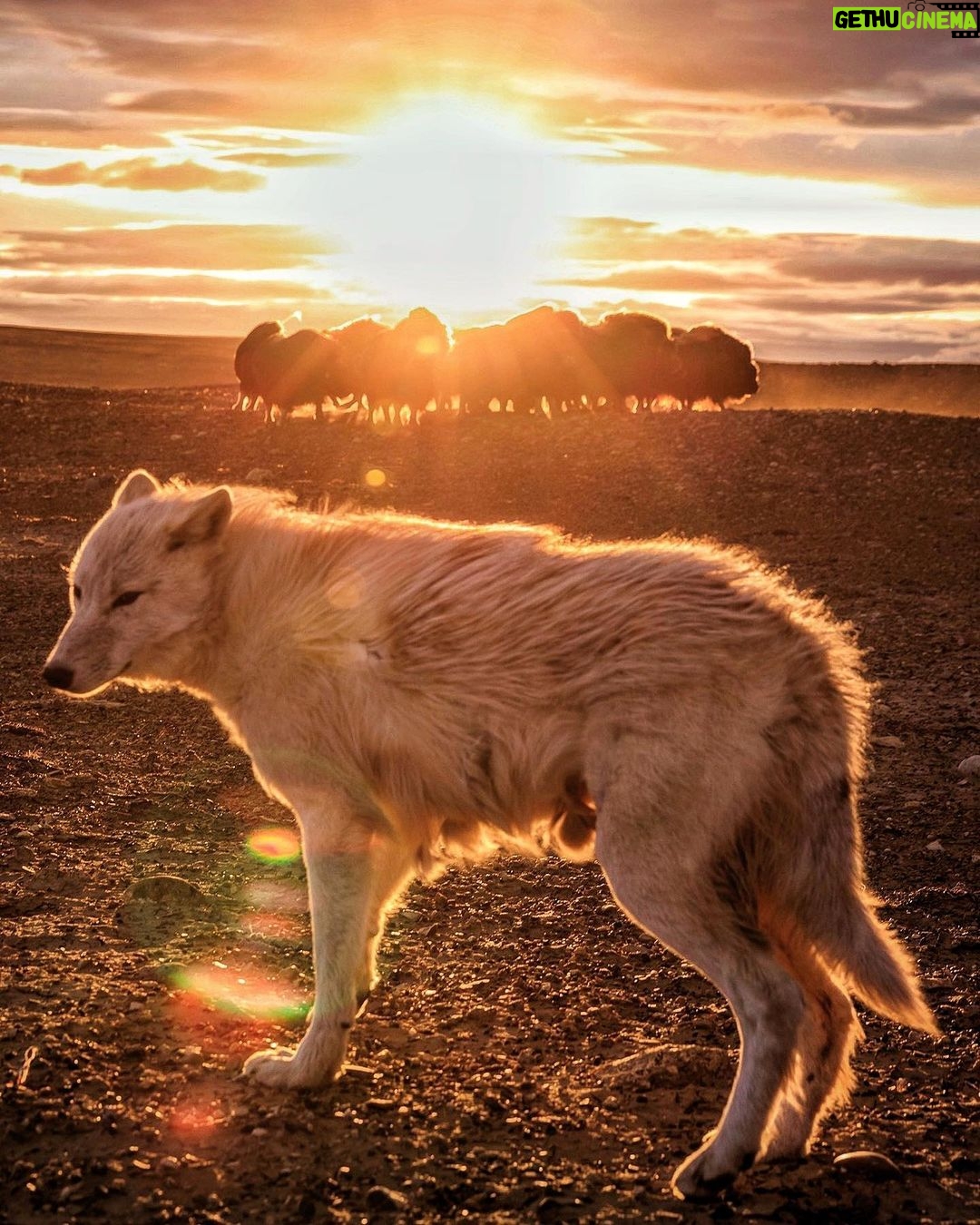
Check out the latest gallery of Ronan Donovan
